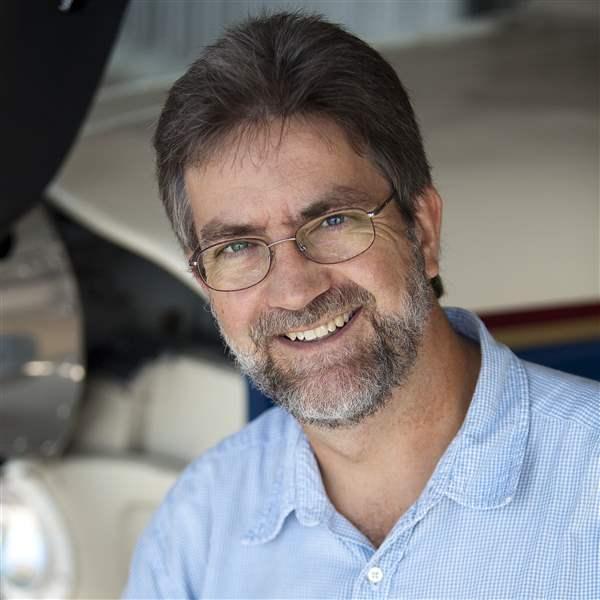Honoring Evelyn Johnson
What if attending would mean a trip across the state, or farther? What if a ticket to the dinner was going to cost you $45?
If you answered no to any of those questions, Evelyn Bryan Johnson of Morristown, Tennessee, probably wasn't your examiner.
More than 400 people gathered among the vintage aircraft of the Tennessee Museum of Aviation and Aviation Hall of Fame, located on the Gatlinburg-Pigeon Forge Airport in Sevierville, to pay tribute to Johnson. To her friends, she's "Miss Evelyn" or "Mama Bird." She got the nickname when a student sent her a Mother's Day card and wrote that she took care of the students like a mama bird looks after its babies. Mama Bird is also the title of Johnson's biography, written by former student George Prince.
The 95-year-old flight instructor, who has logged more flight time -- 57,620 hours -- than any living pilot, administered more than 9,000 practical tests as a designated pilot examiner between 1952 and May 2005 (see "50 Years in the Right Seat," September 1999 AOPA Flight Training). Her flight time is equivalent to more than six and one-half years aloft, if you were to fly 24 hours a day, seven days a week -- or nearly 27 years of flying 40 hours a week, 52 weeks a year. She flies from Moore-Murrell Field in Morristown, northeast of Knoxville.
Almost all of Evelyn's hours have been logged while giving dual instruction or administering flight tests. She took her first flight on October 1, 1944, and earned her private pilot certificate the following June. She added a commercial certificate in 1946 and became a flight instructor in 1947. She was named a designated examiner in 1952.
I first met Evelyn about 12 years ago, shortly after she logged her 50,000th flight hour, when I interviewed her for The Southern Aviator (which I edited at the time). We talked in the open, sofa-filled lounge at Moore-Murrell Field. The only people in the room besides Evelyn and me were two young-looking, sunglass-wearing corporate pilots who'd just brought several businesspeople to town in a Beech King Air turboprop. They sat by windows on the opposite side of the room, trying to look disinterested.
That changed as our conversation continued. First, I saw them take off their sunglasses and look in our direction. A few minutes later, they'd moved to a sofa in the middle of the room, closer to us. Before the interview ended they were on the sofa right behind the one on which Evelyn and I were seated -- turned sideways toward her, hanging on her every word, mouths open in disbelief.
She'd just told me about her experiences ferrying new single-engine Piper airplanes to South America in the 1950s, island-hopping through the Caribbean with only a wet compass for navigation. "I'd talk longer, but I have a student waiting," she apologized as she walked out the door toward a waiting Cessna.
Speakers at Miss Evelyn's tribute included dignitaries and former students alike. Some were both.
Former U.S. Sen. Howard Baker Jr. (R-Tenn.) described how she nearly failed him on his private pilot checkride. "I recall when I went to Morristown to get my checkride from Miss Evelyn for my private pilot certificate, I saw this petite lady and thought, She's going to be a pushover." She asked him to demonstrate a power-on stall in the Beech Bonanza that he was flying. "I said it wouldn't do that. She said, 'It will, or you won't pass.'" Eventually, Baker demonstrated the stall and passed his checkride.
Robert Cope received a notice of disapproval from her during his instrument instructor checkride in 1986 -- and four years later became her supervising inspector at the FAA's Nashville Flight Standards District Office.
Evelyn was named Tennessee Flight Instructor of the Year in 1973 and national flight instructor of the year in 1979. She served on the Tennessee Aeronautics Commission for many years, including one term as chairman, and continues to serve as manager of Moore-Murrell Field.
During the evening, Carolyn Blum, administrator of the FAA's Southern Region, asked how many people present had taken a checkride with Miss Evelyn. More than half of the people gathered in the cavernous hangar raised their hands.
I couldn't imagine a more appropriate tribute to a retiring designated pilot examiner, especially one who clearly touched so many pilots.



